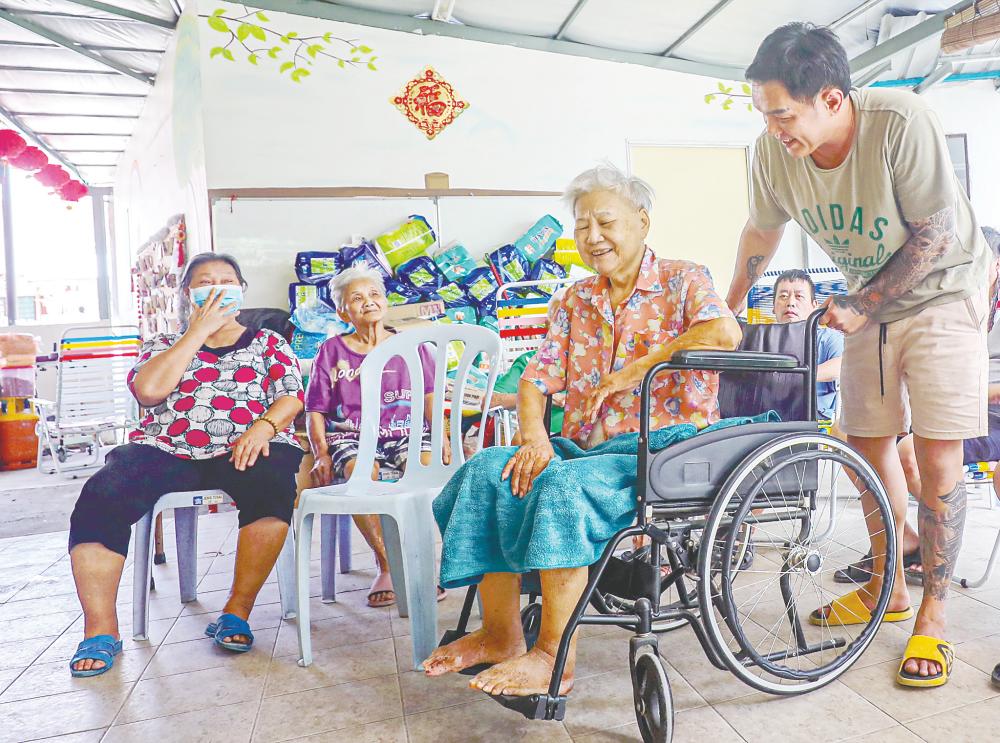GEORGE TOWN: Penang is on track in its efforts to become an age-friendly state by 2028. With the Penang Island City Council leading the charge, there will be a series of new and ongoing initiatives and infrastructure development.
These are based on universal design and are implemented to support the elderly and persons with disabilities (PwD).
Mayor Datuk A. Rajendran said the council incorporates age-friendly and universal design elements into all infrastructure projects, including building and upgrading of roads, walkways, public spaces, toilets, gardens, markets, public housing and new developments by private entities.
“Future projects will involve a mobility van, senior citizens’ activity centres, urban farming and recycling initiatives for employment opportunities.
“We are also committed to progressively upgrading all our public housing schemes to integrate universal design,” he told theSun.
Currently, the universal design concept has been applied at the SP Chelliah public housing project here.
Installations such as ramps and lifts have been fitted, with ground floor units tailored to give priority to the elderly and PwD.
Universal design is a key concept to shaping age-friendly cities, creating urban environments that are more accessible, safe and supportive for everyone.
Its principles encompass city infrastructure, services and public spaces to ensure that facilities are accessible and usable for people of all ages and abilities.
Known as the “Age-Friendly City Penang Strategic Plan,” the initiative was started in 2022. It is a collaborative tripartite effort between the council, Penang Women’s Development Corporation and consultants from the Malaysian Healthy Ageing Society.
Age-friendly cities are also designed around eight strategic domains outlined by the World Health Organisation.
These domains include outdoor spaces and buildings, transport, housing, social participation, respect and social inclusion, civic participation and employment, communication and information, and health services and community support.
Rajendran said an age-friendly city or community is “health-promoting and designed for diversity, inclusion and cohesion”.
“It is meant to accommodate people of all ages and abilities, so that everyone can participate fully in society,” he said, adding that the age-friendly design is a subset of universal design, which focuses on creating supportive environments for the elderly.
The Seberang Perai City Council will also be implementing similar initiatives in 2025.
On Sept 7, Local Government, Town and Country Planning Committee chairman Jason H’ng Mooi Lye said creating an age-friendly environment was important to overcome issues such as social isolation, diminished quality of life and challenges faced by the elderly in maintaining independence.
Apart from highlighting challenges such as mobility issues and problems with public transport, H’ng also noted difficulties faced by the aged in accessing services at government agencies due to a lack of information, digital barriers and complicated processes.
He was speaking during the launch of the “Age-Friendly City Penang Island Strategic Plan” book at the Penang Harmony Centre earlier this month.
Penang earned official recognition as an age-friendly city after the Penang Island City Council joined the Global Network for Age-Friendly Cities and Communities last year on July 28.
The Statistics Department estimates that by the end of the year, 7.7% of the population in Penang (approximately 143,800 residents) will be aged 65 and above, with some 73,900 residing on the island and about 69,800 in Seberang Perai.









